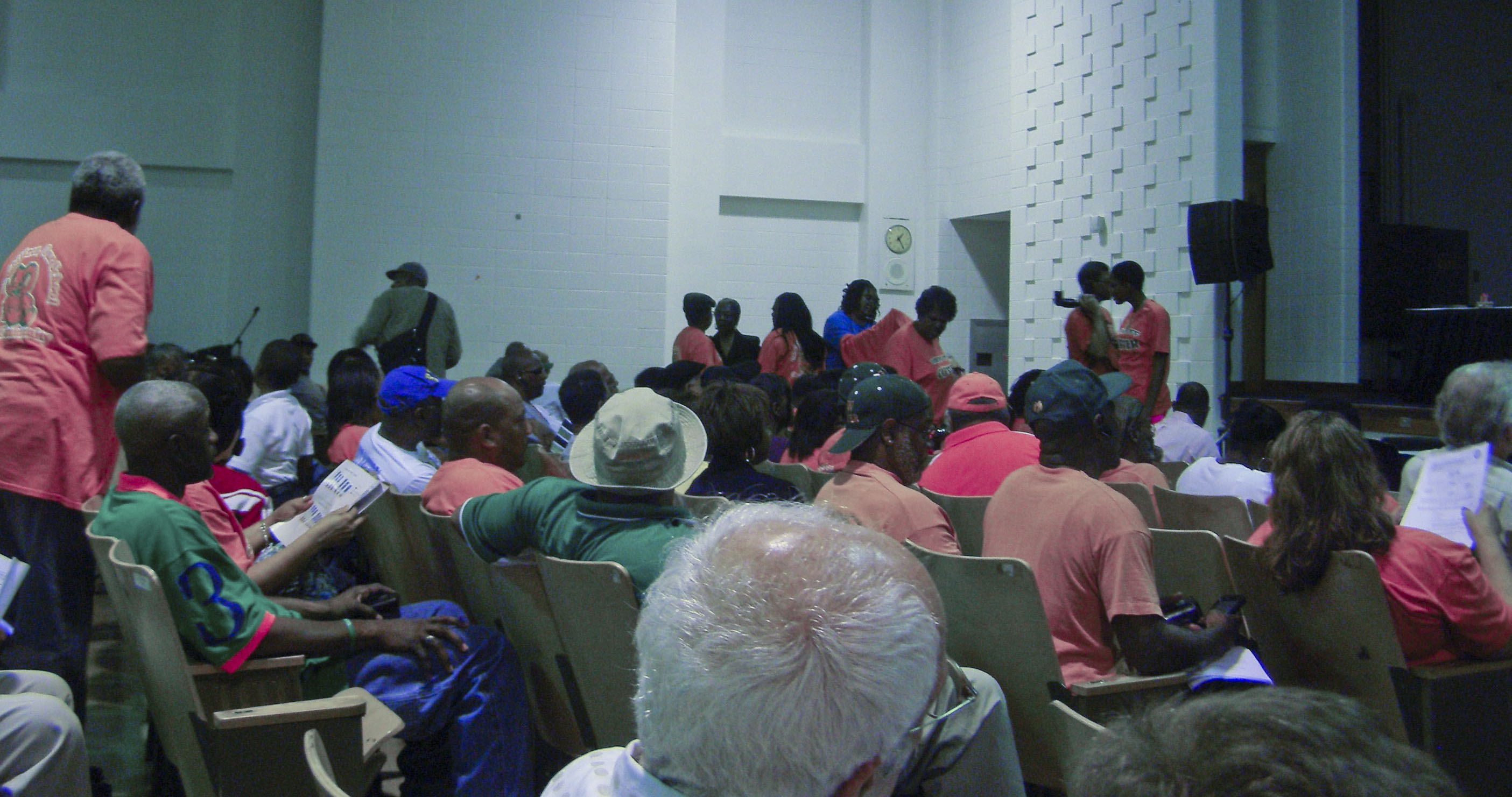A frustration that’s become commonplace among community groups that feel disenfranchised by the Recovery School District’s latest decisions prevailed Wednesday night at a New Orleans meeting of the state school board.
More than 100 people gathered Wednesday to hear the Board of Elementary and Secondary Education approve requests for changes to one submitted charter application, receive the RSD’s annual equity report, and announce the creation of a task force designed to ensure the charter-operator-selection process is equitable.

Despite that announcement, audience members – notably members of the Dr. George Washington Carver Charter School Association, which made up most of the audience – were unsatisfied with the district’s “unfair” selections of applicants with national networks instead of community-based applicants.
Lorraine Jones, a 1964 Carver alumna, said as much in her comments to the board.
“What I’ve seen is heartbreaking. Forcing a school to go through the process application five or six times, and rejecting them…I have a problem with that,” she told members.
Betty Washington, another member of the association, said that the group has applied for a charter for Carver High School three times in the past three years.
“Every hoop that they asked us to jump through, we jumped through,” she said.
RSD superintendent Patrick Dobard told state school board members that some from the Carver group are participating on the task force, and that it is his hope that the next round of requests for charter proposals, set to take place in April, will meet the expectations of every group involved.
The Carver group wasn’t the only one that had grievances to air with the state board, although others used the platform to express different gripes. After Dobard presented the district’s equity report to board members, several audience members pointed out what they perceived as failings.
Cristiane Wijngaarde de Moraes, who works with the local advocacy group Vietnamese American Young Leaders Association, received thunderous applause after she accused RSD officials of not focusing on the lack of resources for non English-speaking families.
“Equality should mean equal for all, not just some,” she told board members. Moraes also said translators within the RSD often lack appropriate skill.
After her comments, Dobard asked her to give her name and number to his chief of staff.
“We do have multilingual individuals responding when you call RSD in Spanish or in Vietnamese, but if the translation is not up to standard, please let us know that,” he said in response.
Longtime charter school adversary Karran Harper Royal went a slightly more militant route in protesting the report, going so far as to tear the glossy document into pieces. Royal said her high hopes for the report were dashed by its failure to list detailed special-education classifications and information on the suspensions and expulsions of special-education students.
Dobard and reform proponent Chas Roemer, the board member who ran the meeting, called the report “a first attempt” at what is sure to be many in measuring equitable practices within the district’s patchwork of schools.
“For the next equity report, I would not want to have Karran Harper Royal to have to tear up a document,” Dobard said.
The district will present the report again and take feedback from parents at its monthly citywide parent meeting on March 7 at H. C. Schaumberg Elementary at 6 p.m.
